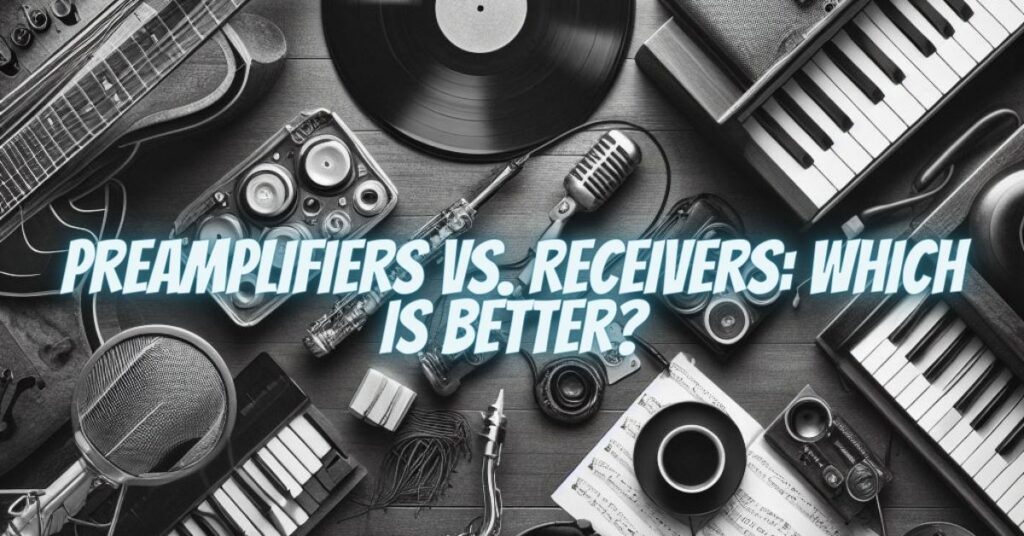Choosing the right components for your audio system is a crucial decision for audiophiles and music enthusiasts. Two common choices that often come into question are the preamp and the receiver. Each has its own set of advantages and applications, but the question remains: Is a preamp better than a receiver? In this article, we’ll explore the characteristics and functions of both preamps and receivers, helping you make an informed choice based on your specific audio needs and preferences.
Understanding the Preamp
A preamp, or preamplifier, is an electronic component designed to amplify low-level audio signals and prepare them for further processing. Preamps are typically used in various audio systems and serve multiple functions:
- Signal Amplification: Preamps boost the weak signals generated by audio sources like turntables, microphones, and instruments to a level suitable for further amplification.
- Impedance Matching: Preamps often match the impedance of the source with the impedance of the power amplifier or other downstream components, ensuring efficient signal transfer.
- Tone Control: Some preamps include tone controls to adjust bass, treble, and other tonal characteristics to tailor the sound to personal preferences.
- Source Switching: Preamps may offer multiple input options, allowing users to select from various audio sources seamlessly.
Understanding the Receiver
A receiver, often referred to as an AV receiver, is a central hub for audio and video components in a home theater or audio system. Receivers combine several functions into a single unit:
- Amplification: A receiver includes built-in amplifiers, allowing you to connect speakers directly to it without needing a separate power amplifier. It amplifies audio signals to drive the speakers.
- Audio and Video Switching: Receivers act as a central hub for switching between audio and video sources. They typically have multiple inputs for various devices like DVD players, game consoles, and cable boxes.
- Surround Sound Processing: Many receivers support advanced surround sound formats and include built-in audio processing for creating immersive audio experiences in home theaters.
- Video Processing: High-end receivers often include video upscaling and conversion capabilities, ensuring compatibility with various display devices.
Is a Preamp Better than a Receiver?
The choice between a preamp and a receiver depends on your specific audio needs and preferences. Here are some key considerations to help you decide:
When to Choose a Preamp:
- Customization: Preamps offer greater customization options, including tone control and the ability to select specific components for your system. This flexibility is ideal for audiophiles who want to fine-tune their sound.
- High-End Audio: If you prioritize sound quality and have high-end audio components, a preamp can deliver cleaner, more transparent audio.
- Specialized Sources: If you have specialized audio sources like high-end turntables, tube amplifiers, or studio-grade microphones, a preamp can provide the necessary signal amplification and customization options.
When to Choose a Receiver:
- Home Theater: If you’re setting up a home theater system that includes both audio and video components, a receiver simplifies the process by centralizing audio and video switching and processing.
- Convenience: Receivers are all-in-one solutions, saving space and simplifying setup. They are ideal for users who want a straightforward, plug-and-play experience.
- Surround Sound: For those seeking a surround sound experience, receivers offer advanced audio processing and multiple channels of amplification, making them an excellent choice for immersive home theater setups.
The decision of whether a preamp is better than a receiver depends on your specific audio needs and preferences. A preamp is an ideal choice for audiophiles who prioritize sound quality and customization, while a receiver is more convenient for those setting up home theater systems and seeking an all-in-one solution. Your choice should align with your specific audio setup and the features that matter most to you, ensuring that you enjoy high-quality sound and an exceptional listening or viewing experience.


